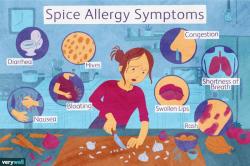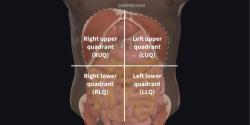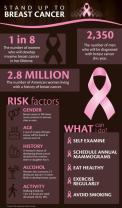What causes a dry cough and a tight chest?
A dry cough and chest tightness can be caused by various factors, including respiratory infections, allergies, and other medical conditions. It's important to note that these symptoms can be indicative of a range of underlying issues, and a healthcare professional should be consulted for an accurate diagnosis. Here are some common causes:
Respiratory Infections:
- Viral Infections: Common colds, influenza (flu), and other viral respiratory infections can cause a dry cough and chest tightness. These symptoms are often accompanied by other signs like a sore throat, congestion, and fever.
- Bacterial Infections: Bacterial respiratory infections, such as bronchitis or pneumonia, can lead to a persistent dry cough, chest discomfort, and sometimes fever.
Asthma:
- Asthma is a chronic respiratory condition characterized by airway inflammation and constriction. People with asthma often experience recurrent dry coughing and chest tightness, especially when triggered by allergens, cold air, or exercise.
Allergies:
- Allergic reactions to pollen, dust mites, pet dander, or other allergens can lead to a dry cough and chest tightness. This is often referred to as allergic asthma.
GERD (Gastroesophageal Reflux Disease):
- Acid reflux can cause stomach acid to flow back into the esophagus, leading to irritation and symptoms like a persistent dry cough and chest discomfort.
Environmental Factors:
- Exposure to irritants such as smoke, pollution, or strong odors can trigger a dry cough and chest tightness in sensitive individuals.
Postnasal Drip:
- Excessive mucus production due to allergies, infections, or other factors can lead to postnasal drip, which can trigger a dry cough and chest tightness.
Medications:
- Some medications, especially ACE inhibitors used to treat high blood pressure, can cause a chronic dry cough in a small percentage of people.
Interstitial Lung Diseases:
- Conditions like pulmonary fibrosis or sarcoidosis can lead to lung scarring and result in persistent cough and chest tightness.
Psychological Factors:
- Stress, anxiety, or panic attacks can sometimes manifest with physical symptoms like a dry cough and chest tightness.
Cancer:
- In rare cases, lung cancer or other cancers can present with symptoms like a chronic cough and chest discomfort.
If you or someone you know is experiencing a persistent dry cough and chest tightness, it's important to consult a healthcare professional for a proper evaluation. The underlying cause can vary widely, and a correct diagnosis is crucial for developing an effective treatment plan. Diagnostic tests, such as chest X-rays, lung function tests, or allergy testing, may be necessary to pinpoint the cause of these symptoms.
Dry Cough and Tight Chest: What You Need to Know
A dry cough and tight chest are common symptoms that can be caused by a variety of conditions. In most cases, these symptoms are not a cause for concern and will go away on their own within a few days. However, if the symptoms are severe or persistent, it is important to see a doctor to rule out any underlying medical conditions.
Some of the most common causes of a dry cough and tight chest include:
- Common cold or flu: These viruses can cause inflammation of the airways, which can lead to a dry cough and tight chest.
- Allergies: Allergies to pollen, dust mites, or other allergens can cause inflammation of the airways and trigger a dry cough and tight chest.
- Asthma: Asthma is a chronic condition that causes the airways to narrow and become inflamed. This can lead to a dry cough, wheezing, and tightness in the chest.
- Gastroesophageal reflux disease (GERD): GERD occurs when stomach acid backs up into the esophagus. This can irritate the airways and cause a dry cough and tight chest.
- Pneumonia: Pneumonia is an infection of the lungs that can cause a dry cough, fever, and shortness of breath.
- Heart failure: Heart failure is a condition in which the heart cannot pump enough blood to the body. This can cause a buildup of fluid in the lungs, which can lead to a dry cough and tightness in the chest.
Chest Discomfort Explained: Dry Cough and Tightness
A dry cough and tight chest can cause discomfort in a number of ways.
A dry cough can irritate the airways and cause a tickling sensation in the throat. This can lead to a persistent urge to cough, which can be uncomfortable and disruptive.
A tight chest can make it difficult to breathe and can cause a feeling of pressure or fullness in the chest. This can be especially uncomfortable when exercising or lying down.
Chest Tightness Demystified: Causes and Concerns
Chest tightness can be caused by a variety of conditions, including those listed above. In some cases, chest tightness may be a sign of a serious medical condition, such as a heart attack or pulmonary embolism.
If you are experiencing chest tightness, it is important to seek medical attention immediately, especially if you have other symptoms such as shortness of breath, chest pain, or lightheadedness.
When to See a Doctor
You should see a doctor if you experience any of the following symptoms:
- A dry cough and tight chest that lasts for more than two weeks
- A dry cough and tight chest that is accompanied by other symptoms such as fever, shortness of breath, or chest pain
- A dry cough and tight chest that is severe or worsens over time
Your doctor will perform a physical exam and may order tests to rule out any underlying medical conditions. Treatment will depend on the underlying cause of your symptoms.
In most cases, a dry cough and tight chest can be treated with over-the-counter cough medications and home remedies such as drinking plenty of fluids and getting plenty of rest. However, if your symptoms are severe or persistent, your doctor may prescribe stronger medications or other treatments.













